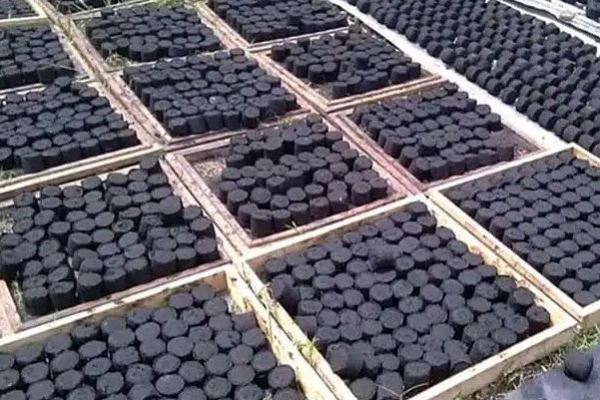Around $4 billion of charcoal or makala is bought on average every year in the Democratic Republic of Congo (DRC). "In the DRC, we spend around $6 billion a year on energy: $4 billion on makala, $1 billion on petroleum products, and $1.2 billion on electricity," said Fabrice Lusinde, Managing Director of of the country’s power utility Société nationale d'électricité (SNEL). Lusinde spoke during a panel titled "Déficit énergétique: et si les miniers apportaient la lumière?" at the 10th edition of the Makutano business forum, which took place in Kinshasa from November 13 to 15, 2024.
Charcoal accounts for 67% of the energy market in the DRC. Other studies suggest that wood energy makes up 94% of the national energy mix, contributing to deforestation and global warming. Lusinde noted that this represents a market share that SNEL can capture. "We've done some small experiments... In places where we've put in meters, we've realized that households are reducing their consumption of makala," he explained, highlighting the potential of electrification to lessen reliance on wood fuel.
Despite the liberalization of the electricity sector in 2014, SNEL still controls nearly 90% of installed electrical capacity. Official documents reviewed by Bankable show that in 2023, the DRC's installed capacity reached 3,238.87 MW (97.49% hydroelectric), but only 67.12% of this capacity was operational. This leaves the electricity access rate at just over 20%.
Anti-Makala Coalition
"The challenge today is to see how, with all the mechanisms offered by multilateral banks, for example, we can convert the $4 billion spent each year in the DRC on wood fuel into hydroelectricity production units," said Fabrice Lusinde, highlighting the need to mobilize resources for sustainable energy infrastructure.
This issue was discussed during the Council of Ministers held on November 8, 2024. That day, Teddy Lwamba, the Minister for Water Resources and Electricity, presented an ambitious project called Compact Énergie Nationale. Among others, the project aims to increase access to clean cooking methods from an annual growth rate of 1% to 6% and to raise $18.66 million in capital for this purpose. The project also aims to boost electricity access from 21.5%, now, to 62.5% by 2030. To achieve this, a total investment of $36.5 billion is needed, with $19.5 billion expected from the private sector. However, specific details about the project have not yet been released.
Several stakeholders are also working to improve access to green energy in the DRC. On October 28, 2024, various parties met under the United Nations Development Program (UNDP) to launch the Congolese version of the mini-grids in Africa program. The meeting addressed key issues like financing and operational models suitable for the local context.
The UNDP is already piloting the National REDD Fund (FONAREDD), which is supported by funding from the Central African Forest Initiative (CAFI). This program aims to strengthen production capacities and access to sustainable energy sources while helping to combat deforestation and promote an inclusive energy transition in the DRC.
Jobs at stake
Through its International Development Association (IDA) and International Finance Corporation (IFC), the World Bank plays a key role in transforming the DRC's energy sector. The two arms of the institution support a project focused on improving governance in the country’s electricity and water sectors while enhancing the profitability of companies like SNEL. The total budget for this program is $944 million, with IDA planning to invest up to $600 million and IFC contributing $160 million. Private-sector participation is estimated at $174 million, while the government is expected to provide $10 million.
In the private sector, the Spark+ Africa Fund recently announced a $3 million loan to the Altech Group in the DRC. This funding aims to supply improved cookstoves to over a million low-income customers over 48 months. The investment will also help develop local production capacity by establishing six assembly facilities in the DRC that can produce over 30,000 improved cookstoves per month.
However, reducing reliance on makala (charcoal) may have social consequences. The charcoal sector employs millions of people along its value chain, who could be displaced without compensation if current projects succeed. Additionally, the cost of clean energy remains out of reach for many in the DRC, where the gross domestic product per capita is still below $750, despite improvements in recent years.
Georges Auréole Bamba










